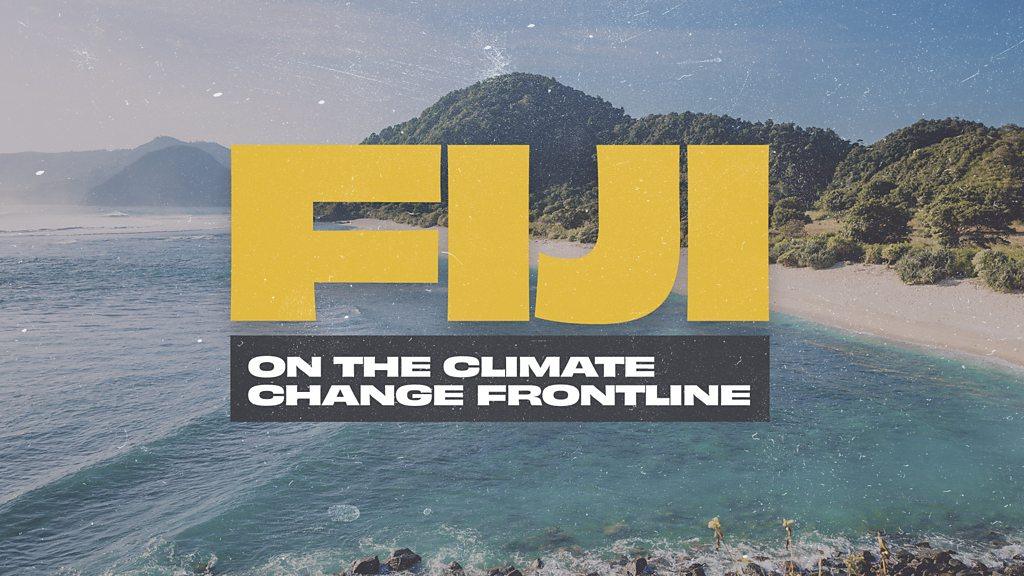Climate change: United Nations' climate goals are getting 'within reach'
- Published
- comments
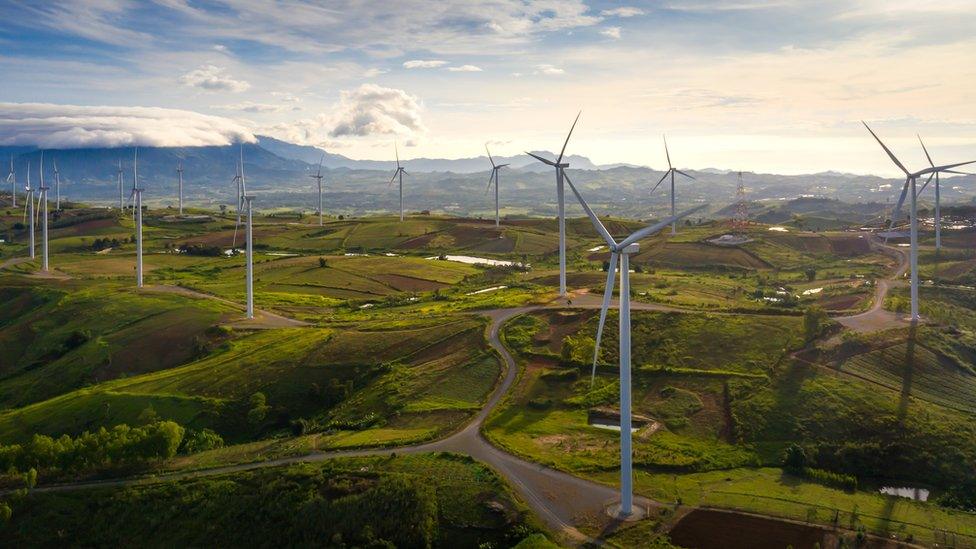
New research by the Climate Action Tracker (CAT) group suggests the goals of the United Nations' (UN) Paris agreement on climate change are getting "within reach".
The group looked at new promises to cut fossil fuel emissions from China (the world's biggest polluter) and other countries, as well as the carbon plans of US president-elect Joe Biden.
Based on these new promises, the group found that the rise in world temperatures could be held to 2.1C by the end of this century.
This is a pretty big deal as it was previously thought to rise by 3C, which would have had disastrous impacts.
However, the experts are still concerned that not enough is being done to cut CO2 emissions.
What is the Paris agreement?
In 2015, there was a huge international deal to do something about climate change.
It was agreed by leaders from 195 countries at a big meeting in Paris, France.
Among them was Barack Obama, who was the US president at the time. He said that the deal offered "the best chance we have" to save the planet.
Among the things agreed in Paris were:
To keep global temperature increase "well below" 2C - and to try to limit it to 1.5C
To reduce the amount of harmful greenhouse gases produced
Review what each country's done every five years
What has the Climate Action Tracker (CAT) found?
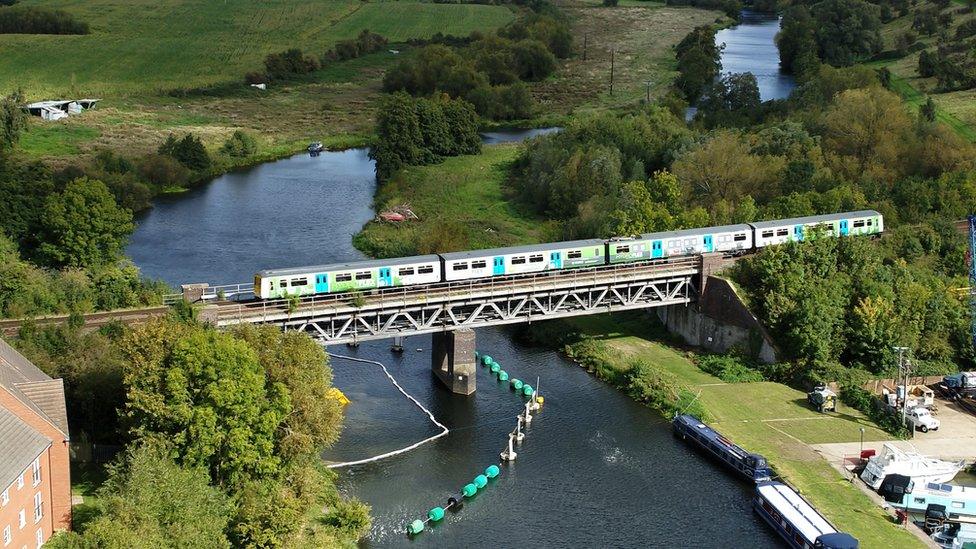
A hydrogen-powered train - the green form of the gas could help decarbonise transport
For more than a decade, researchers from the CAT have kept a close eye on what countries have been promising to do to reduce their carbon emissions.
As a result of the 2015 Paris agreement, countries have slowly started to switch away from fossil fuels.
In September this year, the group said the world was heading for warming of around 2.7C by 2100. This figure was still far above the 2C goal.
And now, their new analysis predicts a rise of 2.1C by 2100.
What has caused the prediction to change?
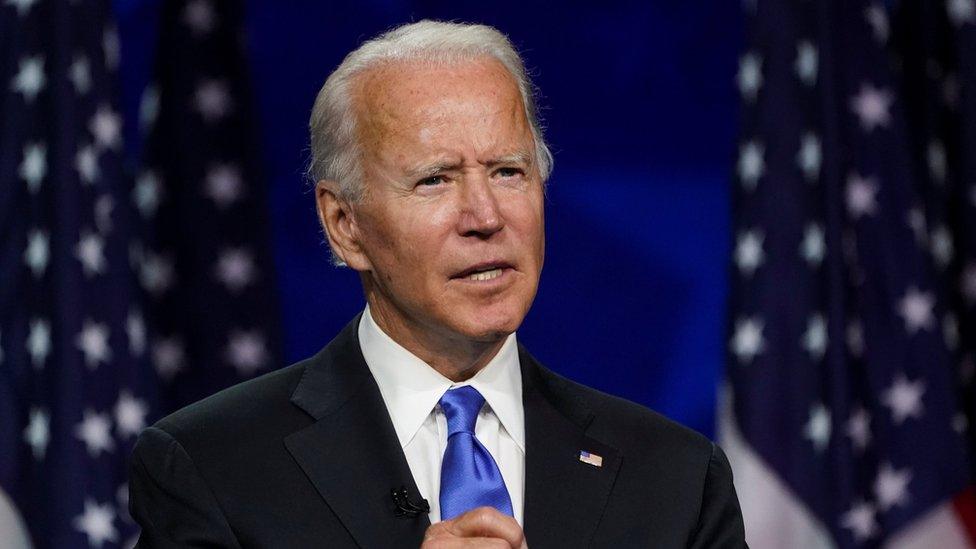
Joe Biden will become the next US president in January and has promised to help tackle climate change
The election of Joe Biden as the next US president has led the researchers to be more optimistic about the future of the environment.
In 2017, president Donald Trump pulled out of the deal, which made a lot of people very unhappy as the US produces the second-highest amount of greenhouse gas in the world.
But now, Joe Biden says tackling climate change is a major concern for him. He has promised to re-join the Paris agreement and bring the US to net zero emissions by 2050. That move would reduce global temperatures by 0.1C by 2100.
WATCH: Leah reports on President Trump pulling the US out of the climate change deal (2017)
Also, in September, China's President Xi Jinping told the UN that his country will reach net zero emissions by 2060, and that its emissions will peak before 2030.
According to the researchers, this could reduce warming by 0.2 to 0.3C by the end of the century.
Japan and South Korea have also pledged to reach net zero by 2050.
And South Africa and Canada have also announced their own net zero targets.
Possible difficulties
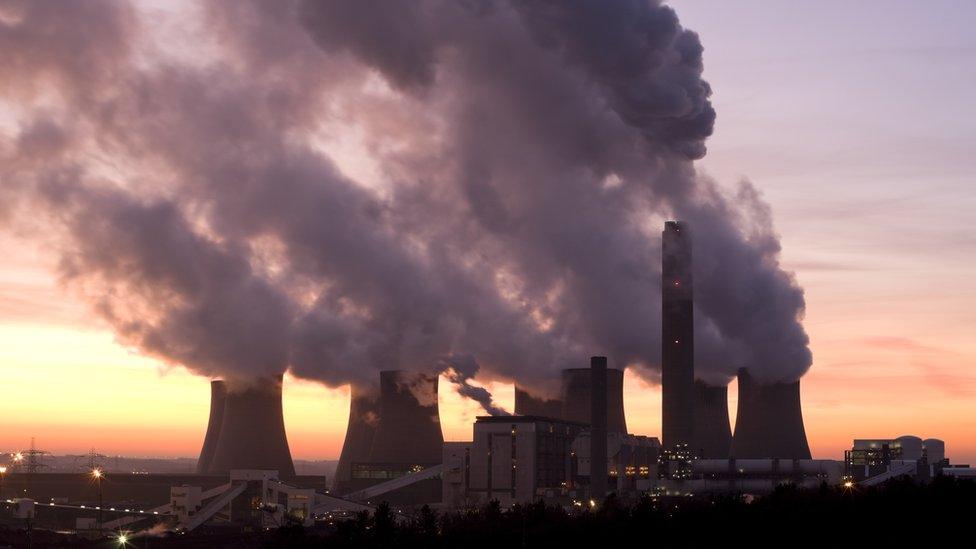
Coal-fuelled power station
The CAT researchers have said the biggest problem is that the plans to cut carbon by 2030 are just not up to the job.
"Long-term targets are easier, they are far away. But short-term actions are happening right now and they affect citizens, they affect voters. And that's why this is much more difficult," said Niklas Höhne, from the New Climate Institute, who also works on the Climate Action Tracker.
The countries that have signed up to the Paris agreement are expected to make new carbon-cutting plans for 2030 by the end of this year.
But there are several countries who are still resistant to setting goals and many poorer nations are still looking to invest in coal.
How has coronavirus changed things?
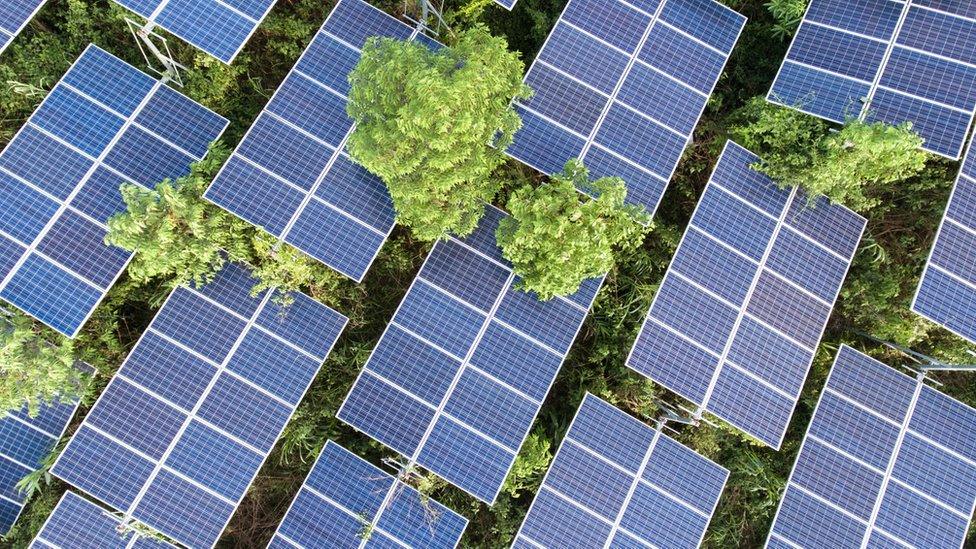
Solar panels are an effective renewable energy course - creating energy from the Sun
Scientists believe countries now have a huge opportunity to focus their short-term spending on renewable energy and reducing carbon use.
"The pandemic opened a window to not only get countries to outline their long-term goal, but to actually move onto the right path so that they can actually achieve the long term goal," said Dr Maisa Rojas, who is the director of the Center for Climate and Resilience Research at the University of Chile in Santiago.
She thinks that "many" countries, "including the EU" is taking this opportunity.
- Published2 June 2017
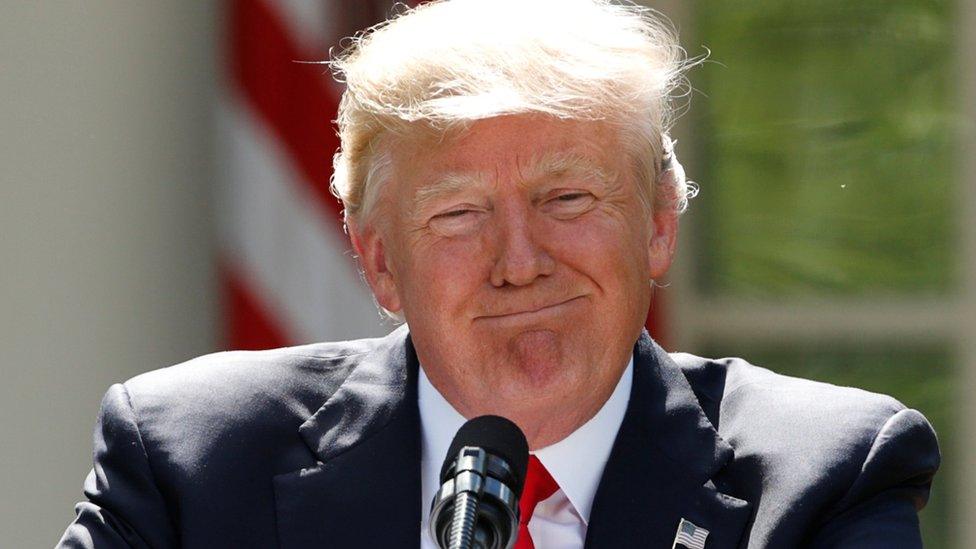
- Published19 May 2020

- Published14 September 2020
